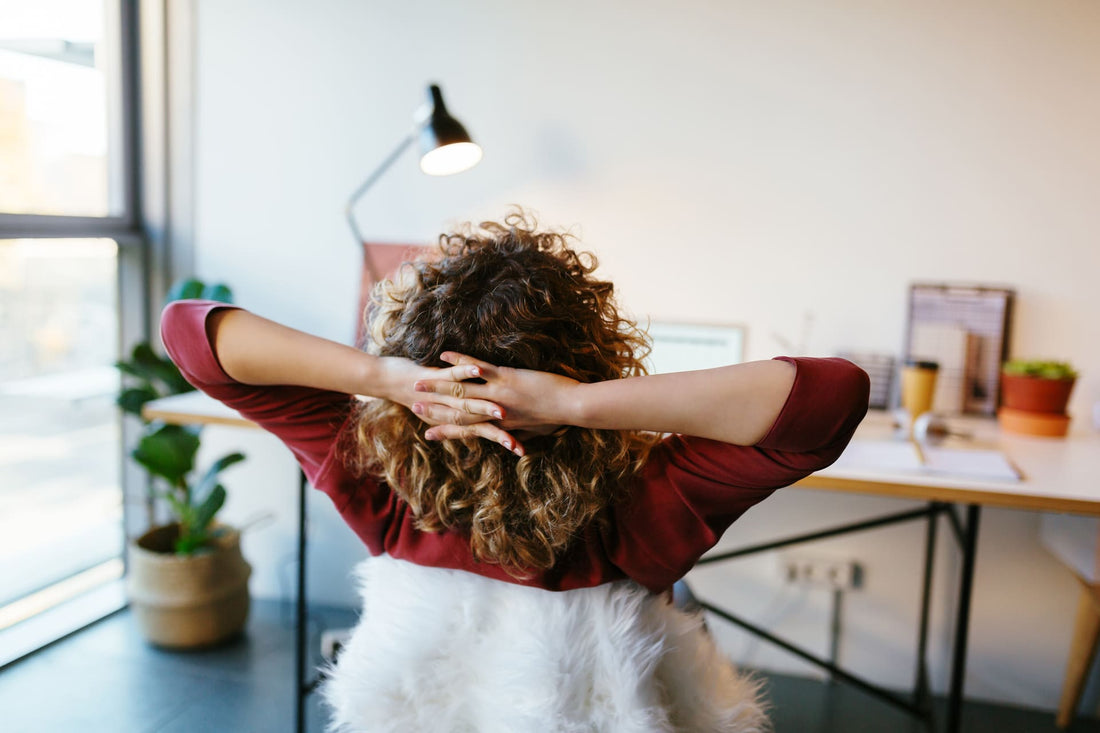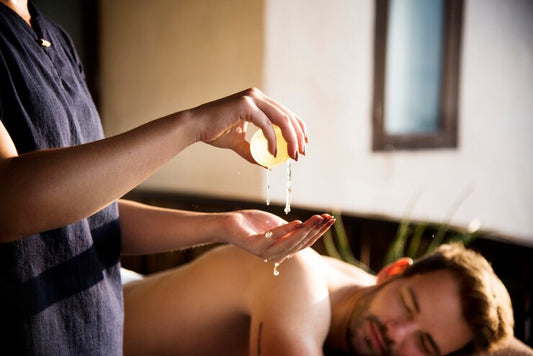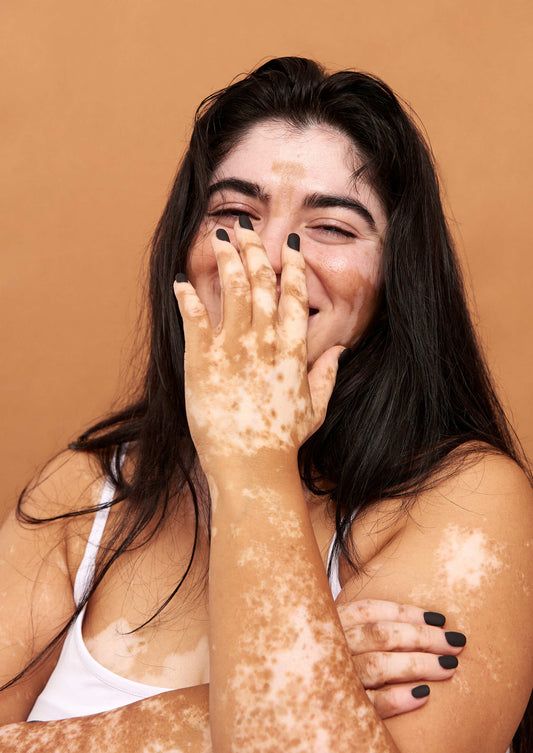Causes and symptoms of anxiety

Do you feel anxious? You're not alone. An estimated 1 in 6 adults have experienced symptoms of a common mental disorder such as depression or anxiety in the past week, with generalized anxiety disorder (GAD) being the most common.
What is anxiety?
The NHS defines anxiety as “a feeling of discomfort, such as worry or fear, which can be mild or severe.
However, this does not cover the reality of the physical and emotional symptoms that can be disturbing and distressing.
Therefore, anxiety is a response to fear. Historically, this would be fear of an immediate threat or danger.
Nowadays, it is more likely to be a date than a wild animal attack, but the physiological response is the same.
When we are anxious, our body produces cortisol and adrenaline, known as the "stress hormones." This is not always a bad thing. A little anxiety and stress can keep us alert, focused, motivated, and encourage us to make decisions that keep us safe.
However, excess anxiety causes a series of unpleasant symptoms, both physical and psychological. In the case of generalized anxiety disorder, these feelings can interfere with activities and enjoyment of daily life.
Physical symptoms of anxiety may include:
- fast heartbeat
- sweaty hands or feet
- fluttering sensation in the chest (caused by heart palpitations)
- xerostomia
- concern
- rapid breathing (hyperventilation)
Psychological symptoms of anxiety may include:
- a feeling of dread
- Constantly feeling "on edge"
- difficult to focus
- irritability
- Withdrawing from family, friends, or social situations
Who gets anxiety?
There is no typical person who suffers from anxiety. Absolutely anyone could experience anxiety.
While it is true that anxiety can have a detrimental effect on your quality of life, it does not mean that you cannot be a successful, outgoing and happy person at the same time.
Although times are changing and open discussion of mental health issues is becoming more common, having anxiety is not always something people choose to broadcast.
So some of the most confident people you know might also be dealing with anxiety behind closed doors.
What causes anxiety?
While there are some risk factors and triggers for anxiety, such as a relationship breakup, grief, or a job interview, sometimes there is no obvious cause.
In fact, no one is completely clear about the causes of anxiety. Experts believe there are several factors at play.
We look at the main factors known to contribute to anxiety.
1.Your genetics
Do any members of your immediate biological family, such as your parents, experience anxiety? If they do, there is a higher chance that you will experience it at some point too.
The genetics of anxiety is an emerging area of study. However, progress is being made and it is an area of great interest to the medical community due to the high prevalence of anxiety in today's world.
It is known that anxiety is somewhat hereditary, since around 31% of offspring share anxiety as a characteristic with their parents, according to the analysis of a study.
Results from a large study conducted in the United States in January 2020 found that people who shared a particular genetic marker tended to share anxiety as a common trait.
2.Your diet
A poor, high-sugar diet is known to exacerbate anxiety symptoms. Sugar intake from sweet foods and drinks has been strongly linked to common mental disorders such as anxiety and depression
Although used as a way to relax and unwind, drinking alcohol is a sure way to increase anxiety.
Despite being a short-term sedative, as your body works to rid itself of alcohol, you may experience withdrawal symptoms including feelings of anxiety, depression, and low mood that can last for several days.
If you experience anxiety, you may also want to consider your caffeine consumption. While a morning or afternoon coffee can be comforting, remember that caffeine is a stimulant and will keep your nervous system on high alert.
Ingesting too much caffeine in the form of energy drinks, coffee, or even chocolate could cause an increased heart rate, jitters, a poor sleep pattern, and a temporary increase in blood pressure, all of which are linked to anxiety.
3.Your sleep pattern
Disrupted sleep contributes to low mood and anxiety. 13 In fact, the link is so strong that the University of Texas found that people with insomnia were up to 17 times more likely to experience anxiety disorders than those who slept normally. 14
4.Your lifestyle
The number of lifestyle factors that influence our mental well-being should not be underestimated.
A stressful trip, a turbulent relationship, or even noisy neighbors can increase your daily stress levels. Even unexpected things, like the amount of time we spend on social media, can stress us out to the point that we're more likely to experience anxiety even after we've logged off.
Living a seemingly positive, high-stress lifestyle can also cause or worsen anxiety. Working a high-level job, planning events, juggling career and children are all stress-inducing things that are generally associated with a happy and successful life.
This may be true, but living a life full of constant stress can lead to generalized anxiety over time.
5.Your life experience
Did you always change schools when you were a child and had to start friendships from scratch? Was your mother terrified that you would walk into the road and was very anxious about traffic? Even things like a big, scary dog next door while growing up can instill fears and anxieties in the developing psyche.
There are many researchers who believe that parenting plays an important role in whether people will grow up to be anxious. For example, separation anxiety and social phobias often have their roots in childhood.
If you felt safe and consistent during your childhood, you are less likely to experience anxiety disorders as an adult.
6.Your sex, age and general state of health
It has been reported that women are twice as likely to experience anxiety as men.
Official government statistics indicate that in 2019, 65% of people referred to Improving Access to Psychological Therapies (IAPT) services in the UK were women.
This could be because men are less likely to go to their GP or other service for their anxiety. More research is needed in this area.
A 2016 study by the University of Cambridge found that young people and people with chronic illnesses were more likely to experience anxiety.
What are the causes of anxiety attacks?
Anxiety attacks, also called panic attacks, are short-lived episodes of extreme anxiety.
Unlike generalized anxiety, which can be present for days, weeks or longer, an anxiety attack only lasts a short time, between 5 and 20 minutes.
During this time, you may experience:
- strong or fast heartbeat
- feeling faint, dizzy, or lightheaded
- sweating, shaking, or tremors
- Nausea
- chest pain
- difficulty breathing
Anxiety attacks are caused by chronic stress, phobias, hyperventilation (rapid, shallow breathing), medication side effects, or excessive caffeine intake. 22
However, sometimes there is no clear explanation for what caused an anxiety attack. Reducing general anxiety will reduce the risk of suffering an anxiety attack.
What will cause or worsen anxiety
Some risk factors for anxiety, such as genetics and gender, are beyond your control. However, there are lifestyle factors that we can control.
Take a look at the following list of factors that increase your risk of anxiety and consider which ones you can change:
- a high sugar diet
- Drink alcohol
- Drink a lot of caffeine in the form of coffee or energy drinks
- taking on too much at work, or socially
- Living with pressures like debt or a turbulent relationship
- a poor sleep pattern or lack of sleep
- Spending a lot of time on social media
Different types of anxiety and symptoms
Anxiety takes many forms, and it can be helpful to identify what type of anxiety you or a loved one may be dealing with. Here is a summary of the most common different types of anxiety.
Generalized anxiety disorder (GAD)
Anxiety disorder (GAD) is the most common type of anxiety disorder and, as its name suggests, does not usually have a specific trigger. It is anxiety at a more general level. The main symptom of GAD is overthinking and worrying excessively about everyday events and activities. It can make you feel out of control and make you feel anxious, "on edge" and alert to your surroundings most of the time.
Experiencing this type of anxiety can negatively affect your daily life. Common problems that GAD can affect include your ability to leave the house, travel to places, and work. Getting tired easily, having trouble sleeping and concentrating are symptoms, as are sweating more than usual and experiencing muscle tension. Depression or other anxiety disorders are commonly experienced along with GAD.
It can be quite difficult to get a diagnosis of GAD, as it does not have some of the unique symptoms of other common anxiety disorders. If you have been feeling anxious for any reason on most days for six months and it has had a negative impact on your life, your doctor will likely diagnose you with GAD.
Seek advice from your GP if you think you have GAD.
panic disorder
Have you ever had a panic attack? People with panic disorder experience panic attacks regularly without a specific trigger.
What is a panic attack?
A panic attack is a type of fear response: they are an exaggeration of your body's normal response to stress, danger, or emotion.
These frequent panic attacks can come out of nowhere and can be frightening and intense, often causing you to worry about having other panic attacks. Not to be confused with triggered panic attacks, for example, you don't like large crowds and one forms around you for some reason and you have a panic attack, this does not necessarily mean you have a panic disorder.
These are some common symptoms of panic disorder:
- An intense, overwhelming feeling of fear or dread
- Chest pain or feeling like your heart is beating irregularly
- Feeling like you may be having a heart attack or dying
- Hot flashes and sweating, or chills and chills
- Dry mouth or feeling of choking
- Dizziness, nausea and feeling faint
- Tingling, numbness, or tingling in the fingers
- Need to go to the bathroom more
- Ringing in the ears
- Churning feeling in the stomach
Seek help from your GP if you are experiencing this and want help.
Social anxiety disorder
Also known as social phobia, social anxiety (SA) is an intense fear of social/performance situations. It's normal for everyone to have passing worries about social situations, but when you're afraid of social occasions most of the time, it could be social anxiety. Some situations can cause social anxiety before, during and after the event, such as:
- Meet new people or strangers
- Speaking in a group or in public
- Go out with someone
- Drinking and eating in public
One of the main concerns of people with AS is that they will be embarrassed in front of people. This worry can cause physical symptoms such as:
- Perspiration
- A trembling voice
- Fast heartbeat
- Redness of the skin
You may also worry excessively about what other people think of you and feel self-conscious that they can see that you are embarrassed. This can cause you to avoid certain situations and isolate yourself. You may realize that these fears are excessive, but you still find it difficult to control this intense worry.
Seek help from your GP if you are experiencing this and want help.
Phobias
A phobia can refer to anything, for example, a place, object, situation, animal, or feeling. They are not simply a fear, phobias are much stronger. Phobias develop when people have an increased sense of danger about an object or situation, so much so that they can organize their daily routine to avoid what they have a phobia of. Common phobias include:
- Environmental phobias, such as germs and heights
- Animal phobias, such as snakes, spiders, or rodents
- Body phobias, such as being sick or seeing blood
- Sexual phobias, such as performance anxiety
- Situational phobias, such as going to the dentist
Agoraphobia
People with agoraphobia are afraid of being in situations from which they cannot or may be difficult to escape, or from which they would not be able to get help if something went wrong. Examples of this are:
- Leaving home
- Use the public transport
- Being in crowded places
- Being in public places
Being worried about these common day-to-day activities can make you feel distressed, anxious and panicked and cause you to avoid certain situations altogether.
Going to see your GP can be difficult if you suffer from agoraphobia. However, you can make a phone appointment with them and they can help you get treatment.
Seek help from your GP if you are experiencing this and want help.
Obsessive-compulsive disorder (OCD)
Obsessions and compulsions are separate things that make up OCD.
Obsessions are an unwanted image or thought that you can't stop thinking about and that is mostly out of your control. These hard-to-ignore thoughts can be disturbing and make you feel anxious and distressed.
Compulsions are things you do or think to relieve anxiety. These behaviors can be covert, such as saying a phrase in your head to calm yourself, or obvious, such as making sure all the windows are closed. It's common to think that something bad will happen if you don't do these things, even if you recognize that it's not logical, but you still find it difficult to stop it.
There are many types of OCD, including:
- Checking – The constant need to protect yourself or your environment from harm, for example leaks, fires or damage.
- Contamination : the need to do a lot of washing and cleaning because something or someone is "contaminated"
- Hoarding : not being able to throw away worn-out or useless items
- Intrusive thoughts : Having uncontrollable, annoying, repetitive and often very disturbing thoughts appear in your head.
Talk to your GP if you are worried about having OCD and they can discuss possible treatments with you.
Pinch the skin
Medically known as dermatillomania , skin picking is an impulse control disorder. You find it difficult to stop picking your skin, even when it is healthy. This can cause bleeding, bruising, and sometimes even permanent marks. Typically, people pick at the skin on their face, but some also pick other areas of the body and find it difficult to stop.
The cause of skin picking is not known, but it is believed that it could relieve tension and stress or is some type of addiction. It is quite common to pick your skin and have OCD at the same time.
Your GP can make an appointment for you to see a mental health doctor for a diagnosis.
Pull out your hair
Another impulse control disorder is hair pulling, also known as trichotillomania. If you don't have underlying skin conditions that cause you to pull out your hair, but you still have the urge, you may be experiencing this disorder. You will feel a strong desire to pull out hair from places such as your eyelashes, arms, eyebrows, legs or pubic area and you will find it difficult to stop.
When you pull out your hair, you may be relieving tension, experiencing pleasure, or not even aware that you are doing it. It is difficult to stop, so having this disorder long-term can lead to hair loss and, consequently, significant distress, guilt and shame.
Seek help from your GP if you are experiencing this and want help.
Post-traumatic stress disorder (PTSD)
If you have been feeling anxious and have experienced a traumatic situation, such as being in a fire, seeing people die, or being sexually assaulted in the past, you may have post-traumatic stress disorder. This anxiety can last for months or years, even if you have not been physically harmed. Go see your GP, who can suggest treatment for this condition.
Body dysmorphic disorder (BDD)
If you are upset about the way you look and can't stop thinking about it, you may be suffering from body dysmorphic disorder. This can manifest itself in several ways, including:
- Obsessively worrying about a perceived flaw in your physical appearance, when most people can't see it or don't think it's as bad as you do.
- Develop compulsive routines and behaviors, such as excessive use of mirrors, or picking at your skin or hair as a way of trying to cope.
Many people with this disorder will not seek help, as they worry about being perceived as vain. It's not vanity: consult your GP to see how you can treat this disorder.
Sources
- https://www.mind.org.uk/information-support/types-of-mental-health-problems/statistics-and-facts-about-mental-health/how-common-are-mental-health-problems/
- https://www.nhs.uk/conditions/generalised-anxiety-disorder/
- https://www.ncbi.nlm.nih.gov/pmc/articles/PMC4263906/
- https://www.nhsinform.scot/illnesses-and-conditions/mental-health/anxiety#symptoms
- https://www.ncbi.nlm.nih.gov/pmc/articles/PMC5573560/
- https://europepmc.org/article/med/31906708
- https://www.ncbi.nlm.nih.gov/pmc/articles/PMC5532289/
- https://www.ucl.ac.uk/news/2017/jul/high-sugar-intake-linked-poorer-long-term-mental-health
- https://www.healthline.com/health/hangover-anxiety#possible-causes
- https://www.ncbi.nlm.nih.gov/books/NBK202225/
- https://pubmed.ncbi.nlm.nih.gov/1356551/
- https://www.healthline.com/health/caffeine-effects-on-body#2
- https://www.sleepfoundation.org/excessive-sleepiness/health-impact/complex-relationship-between-sleep-depression-anxiety
- https://pubmed.ncbi.nlm.nih.gov/16335332/
- https://www.centreformalhealth.org.uk/blog/centre-mental-health-blog/anxiety-loneliness-fear-missing-out-social-media
- https://www.ncbi.nlm.nih.gov/pmc/articles/PMC4570859/
- https://www.ncbi.nlm.nih.gov/pmc/articles/PMC5573560/
- https://www.nhs.uk/news/mental-health/women-are-more-likely-to-suffer-from-anxiety-than-men/
- House of Commons Library Briefing Paper Number 6988 January 2020
- https://onlinelibrary.wiley.com/doi/full/10.1002/brb3.497
- https://www.mind.org.uk/information-support/types-of-mental-health-problems/anxiety-and-panic-attacks/panic-attacks/
- https://www.priorygroup.com/mental-health/panic-attack-treatment/causes-of-panic-attacks
- https://www.mind.org.uk/information-support/tips-for-everyday-living/food-and-mood/about-food-and-mood/




